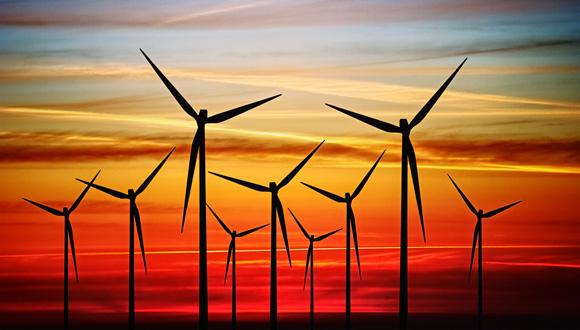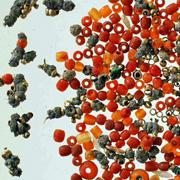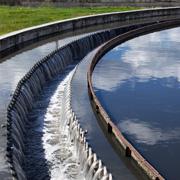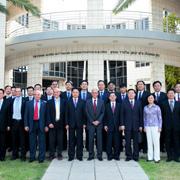CleanTech Solutions
Researchers at TAU's new Renewable Energy Center are developing novel technologies to harness the power of nature.
The food versus fuel debate has been gaining increasing attention in recent years as more and more farmland has been diverted from agricultural cultivation to biofuel production. In addition, the use of commodities such as corn, vegetable oil and sugar as a source of renewable energy has been blamed for causing higher food prices.
In response to this dilemma, Dr. Yuval Ebenstein (pictured below left), a new young faculty member of the Sackler School of Chemistry, Raymond and Beverly Sackler Faculty of Exact Sciences, has been researching alternative energy sources that neither compete for arable land nor require the use of human food. He is one of fifty-five senior researchers at TAU’s Renewable Energy Center, whose mission is to seek creative solutions to some of the most pressing issues facing the planet today.
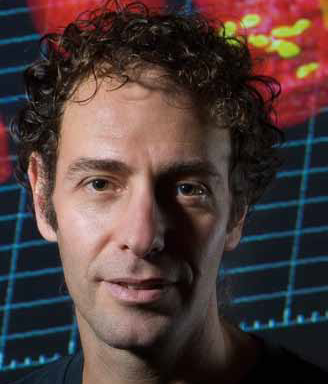 |
Dr. Ebenstein’s project involves sustainably cultivating green algae to produce bio-diesel. He theorizes that growing green algae in tanks and then positioning them on non-arable land would minimize competition with food sources. However, a greater understanding of the metabolic processes of green algae leading to biofuel production is needed before this method can be achieved.
Using advanced optical microscopy, Dr. Ebenstein has been analyzing these metabolic pathways in order to quantify biofuel production in real time. The success of his study could potentially lead to large scale and cost-effective production of biofuels, which would reduce our dependence on fossil fuels without compromising food security.
Renewable Energy Research: Vital for Israel
A multi-disciplinary and innovative hub, TAU’s Renewable Energy Center strives to preserve the world’s natural resources while advancing Israel’s economy and security. Recently, the State of Israel recognized this commitment by naming it a National Research Center, a government initiative to promote Israel’s intellectual creativity and foster fruitful collaborations between leading research institutions throughout the country.
“We are very honored to have won this position,” explains head of the Center, Prof. Yossi Rosenwaks. “The Center is a powerhouse in the renewable energy field, and we are making great strides in creating a cleaner, more sustainable environment for future generations.”
The Future of Wind Power
Prof. Avi Seifert (pictured below right), head of the Meadow Aerodynamics Laboratory at the School of Mechanical Engineering, Iby and Aladar Fleischman Faculty of Engineering, is another leading researcher at the Renewable Energy Center working to solve our energy needs. “Wind is one of the cleanest sources of natural energy,” he explains, “however, current technologies for generating power from the wind are not as effective as they could be, since wind turbines will only work efficiently within a certain range of wind speeds.” This shortcoming limits the functionality of existing wind turbines and also poses serious restrictions on where they can be placed.
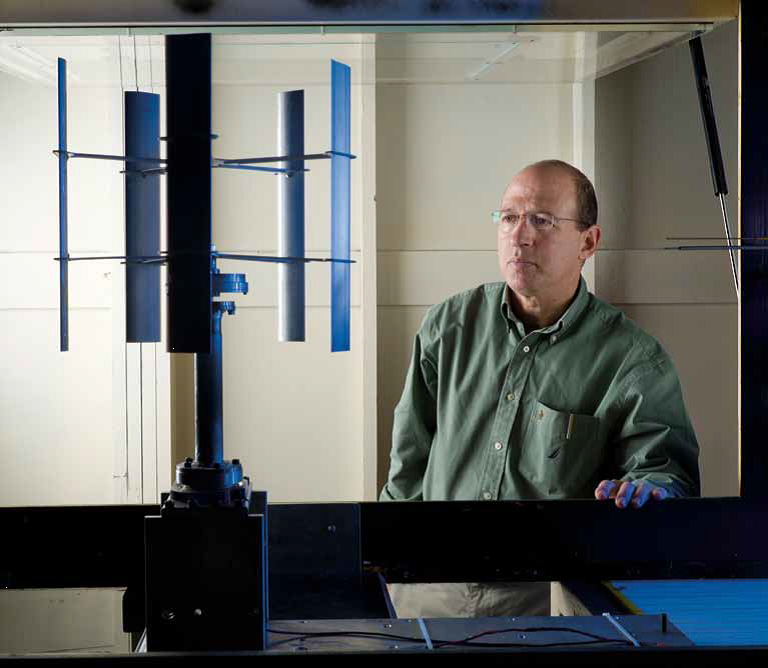 |
Prof. Seifert, together with his colleagues Prof. Touvia Miloh and Prof. Abraham Kribus of the School of Mechanical Engineering, has been working on the development of a novel wind turbine technology incorporating Active Flow Control, which will allow wind turbines to be placed in areas of much lower wind speeds. This technology has the potential to significantly increase our ability to harness energy from the wind and in doing so reduce our carbon footprint and emissions.
Already, his research is being applied to reducing the aerodynamic drag of large trucks driving at highway speeds, thereby significantly improving automobile fuel efficiency. In the future, Prof. Seifert’s team hopes to develop smaller, quieter and more flexible wind turbines using Active Flow Control that can be placed in and around built-up areas without causing a disturbance. By making wind power a more viable renewable energy source, Active Flow Control technology could eventually lead to more sustainable and energy-efficient communities.
From Dr. Ebenstein’s sustainable algae production, to Prof. Seifert’s quieter and more efficient wind turbines, the Renewable Energy Center is pioneering the development of clean technologies and positioning Israel as a world leader in this critical field.

